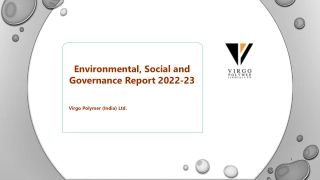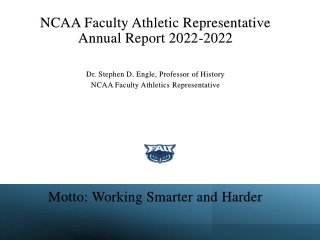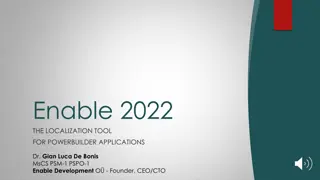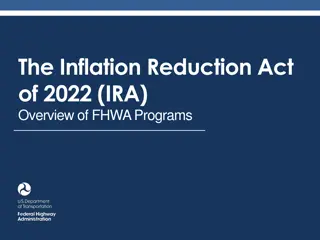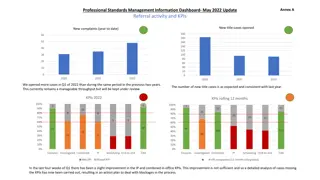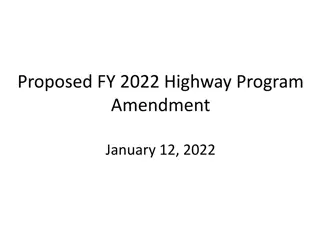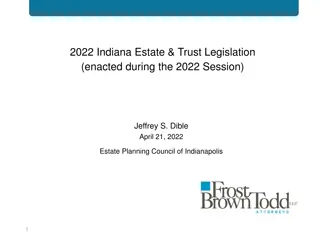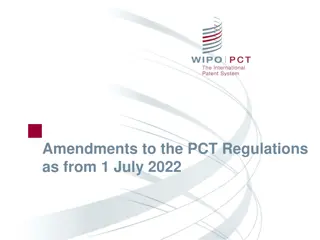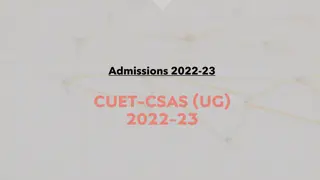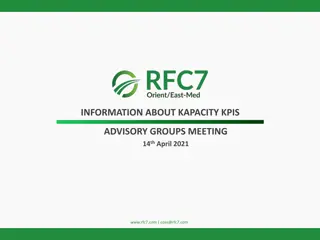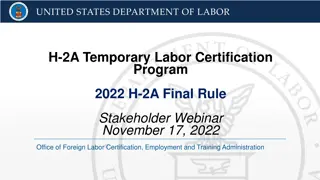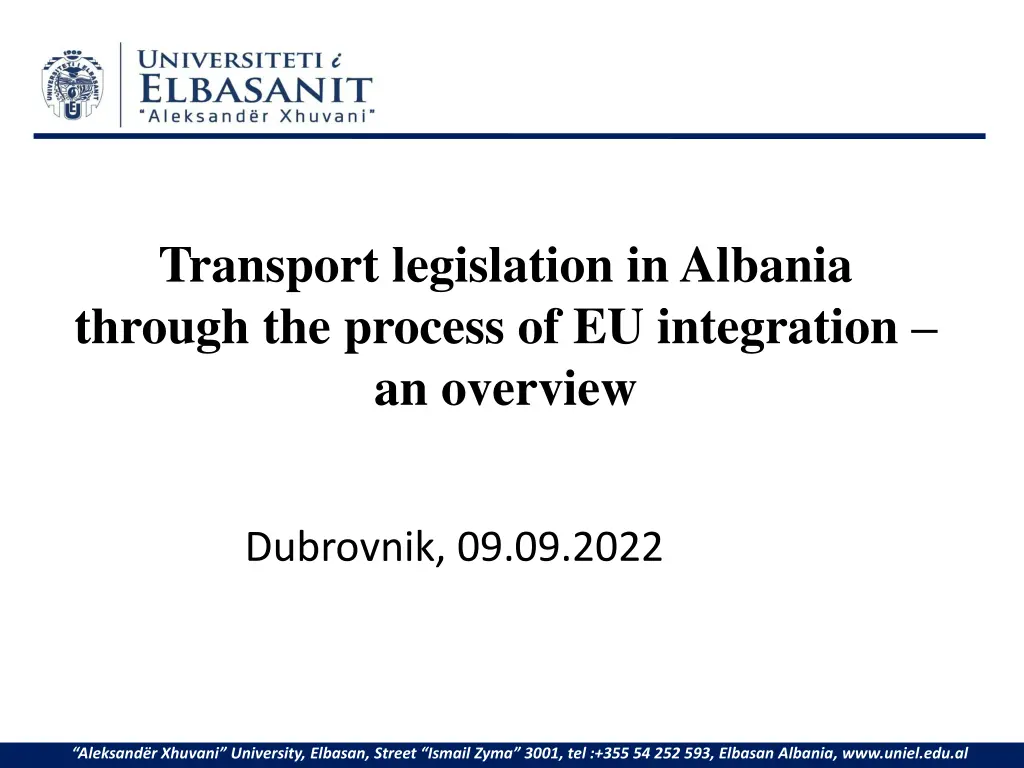
EU Integration Process of Albania: Transport Legislation Overview
Explore the evolution of transport legislation in Albania through the EU integration process, focusing on codification, legislative framework, EU influence, and the challenges in the transport sector. The analysis includes key laws, codes, and regulatory authorities. Understand the impact of EU principles on Albanian national legislation and the significance of codification for legal certainty in the transport sector.
Download Presentation

Please find below an Image/Link to download the presentation.
The content on the website is provided AS IS for your information and personal use only. It may not be sold, licensed, or shared on other websites without obtaining consent from the author. If you encounter any issues during the download, it is possible that the publisher has removed the file from their server.
You are allowed to download the files provided on this website for personal or commercial use, subject to the condition that they are used lawfully. All files are the property of their respective owners.
The content on the website is provided AS IS for your information and personal use only. It may not be sold, licensed, or shared on other websites without obtaining consent from the author.
E N D
Presentation Transcript
Transport legislation in Albania through the process of EU integration an overview Dubrovnik, 09.09.2022 Aleksand r Xhuvani University, Elbasan, Street Ismail Zyma 3001, tel :+355 54 252 593, Elbasan Albania, www.uniel.edu.al
Legislative framework The process of Codification Two breaking point Changes of regime law no. 7877 date 30.11.1994 OnAlbanian CivilAviation . law no. 8308 date 18.03.1998 On road transport law no. 9317 date 18.11.2004 Rail transport code of the Republic ofAlbania . EU integration process ASA with EU needs to deal with EU principles Codification under EU expertise Maritime Law no. 9251 date 08.07.2004 Maritime Code of the Republic ofAlbania , amended Law no. 9130 of 2003 disposes on PortAuthorities Rail Code of Rail Transport of 2016 Forthcoming Regulatory Authorities waiting since 2019 Air Air Code - Law no. 10040 date 22.12.2008 NewAir code and not changes to the abomeve mentioned adopted in 2020 Road Law 8308 dated 18.3.1998 On Road Transport , as amended 2
Process of Codification and EU influence The process of codification always involves difficulties starting from the assumption that it must culminate with an organic, complete and, in principle, tendentially autonomous corpus within the legal system National legislation is mainly affected by international law The Italian paradigma of codification within transport Code of Navigation Breaking point Signing of the Stabilization and Association Agreement with the EU, ratified with law no. 9590 date 27.07.2006 Acquis communautaire Free movement of transport services (art. 59) 3
Process of Codification in transport sector The process of codification always involves difficulties In the field of transport for the creation of separate codes that have the character of a specialty rather than an autonomy Many dynamic references to other general articles (especially civil code regarding contract of transport) The choice of Albanian legislator to adopt codes in the sector of transport mainly responds to the requests of the EU authorities There are different special sectors that are not regulated by codification like in example business law. The adoption of a Code offers more legal certainty and better regulation bringing out the regulation of the sector of transport out of the normal political debate and programs of various majorities within the Parliament 4
EU integration process of Albania The position of Council and Commission is different from 2013 until 2021 The report from 2019, 2020 and 2021 of the Commission Substantive progress (significant progress in some areas) Positive evaluation by the Commission Opening of the negotiations process in 2022 The new methodology of enlargement Importance of acquis adoption A better forwarding of the implementation of secondary legislation Substantial the correct adoption of the acquis 5
Conlusions Albanian legal system we are still in an ongoing process in order to fully implement Codes regarding transport and adopting secondary legislation Separate codes that have the character of a specialty rather than an autonomy The choise of Albanian legislator to adopt codes in the secotr of transport mainly responds to the requests of the EU authorities in order to have a fixed legislation which need a majority of 3/5 in Parliament in order to be amended We can find a reason for codification in transport sector in the commitments taken from Albanian in the process of Stabilisation and Association in the EU, where the transport sector, due to its nature of internationaity, has a significant relevance of being harmonised with priority, differently like other pieces of national legislation. The adoption of a Code offers more legal certainty and better regulation bringing out the regulation of the sector of transport out of the normal political debate and programs of various majorities within the Parliament 6
Contacts: Thank you for your attention! Any question ? Assoc. Prof. Dr. Av. Arber Gjeta Jean Monnet Chair in EU Law Department of Law Faculty of Economy University of Elbasan arber.gjeta@uniel.edu.al 7

